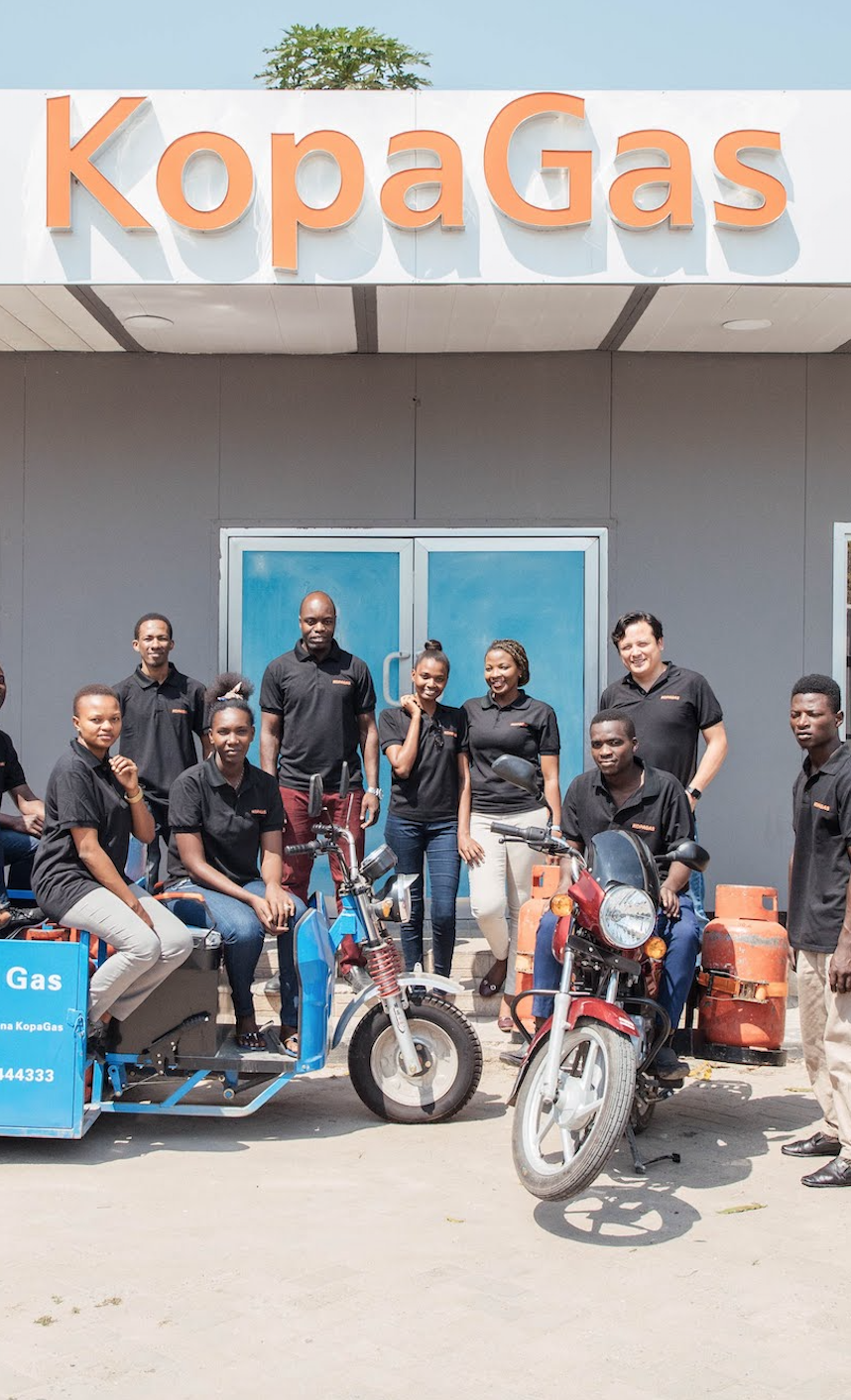Press Release
13 Jan 2020


Circle Gas Limited has concluded the acquisition of KopaGas’s proprietary technology in a transaction worth USD 25 million. The deal is thought to be the largest-ever pure private equity investment in the clean cooking technology sector. The acquisition will enable Circle Gas to gain access to pay-as-you-go (PAYG) technology, advanced manufacturing capabilities and positions in key LPG markets in East Africa. About 900 million people, or 70% of the population of sub Saharan Africa have not yet transitioned to clean and modern cooking fuels such as LPG.1
With this acquisition, Circle Gas designs, manufactures and deploys Internet of Things (IoT) devices and software that enable customers to pay and consume small amounts of gas at a time using mobile wallets such as M-Pesa, whilst providing timely and granular usage and payment information.
In business since 2014, KopaGas received early financial support from entities including Acumen Fund and DEG / KFW. The UK Government Department for International Development (DfID) was critical in encouraging the development of the KopaGas technology, in particular through its involvement in the GSMA Innovation Grant, which the founders of KopaGas, Andron Mendes and Dr Sebastian Rodriguez were awarded in 2015. Both cofounders will remain as key executives in the new venture.
The Circle Gas investment will facilitate energy access for the mass market via the scale-up of the innovative pay-as-you-go technology developed by KopaGas, accelerating its market penetration in East Africa. Circle Gas will continue to invest in Tanzania and is now launching in Kenya. Circle Gas investors include both corporates and individuals and includes the leading Kenyan telecom Safaricom.
Circle Gas Kenyan subsidiary M-Gas also has a strategic operating agreement with Safaricom, covering marketing, technology, and customer service to support and accelerate the growth of the business in Kenya. Mobile money payments in Kenya will be processed using Safaricom’s popular M-Pesa system.
Clean cooking solutions are badly needed throughout the developing world, particularly in Sub-Saharan Africa, where most families use expensive and polluting cooking fuels such as charcoal, biomass and kerosene, every day. Cooking with such fuels has serious impacts on the respiratory health of children and women who disproportionately bear the cooking responsibilities. The intense demand for charcoal in urban centres means that forest stocks are not sustainably managed, but rather sacrificed to produce charcoal. Today, LPG is a clean cooking solution used globally by over 3 billion people, yet it remains mostly unaffordable in Sub-Saharan Africa. Switching from harvested wood to LPG has profound climate mitigation impacts, as well, reducing net carbon emissions by 67%.2
Sebastian Rodriguez, co-founder and CEO of KopaGas, said “The investment in clean cooking solutions required to match the scale of the problem are several orders of magnitude of what we have today. We are grateful to find in the Circle Gas team the vision and expertise required to fundamentally change the game and crystallise the KopaGas vision to improve access to clean cooking for millions of households.
Volker Schultz, CEO Circle Gas, said “By working together with KopaGas and Safaricom we stand on the verge of creating a game-changing company that brings affordable, modern and convenient cooking fuel to millions of low-income households in Africa and beyond, whilst leading to material societal improvements in line with the United Nations Sustainable Development Goals, particularly around energy access, health, gender, climate and
innovation.
Michael Joseph, CEO of Safaricom said “This is another unique opportunity for Safaricom to participate in a project that really changes peoples’ lives for the better and to demonstrate how technology, such as M-Pesa, IoT and the GSM network can be used to improve the environment in a sustainable way and in the longer term, provide new revenue opportunities for the company.”
Alok Sharma, UK International Development Secretary said “I am delighted about this investment by UK company Circle Gas into Kenya, which is helping to scale up innovative technology to make cooking for Kenyans more environmentally friendly and healthy. This is a great example of a UK-African partnership, which is reducing carbon emissions while also creating jobs. I look forward to next week’s UK-Africa Investment Summit which will showcase new and exciting opportunities for British and African businesses.”